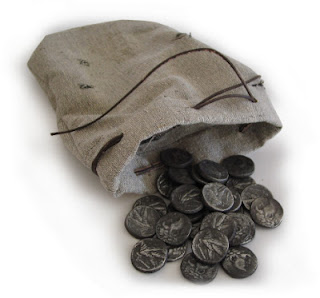First of all, Happy Thanksgiving (last night)! I hope you all had a wonderful night and are slowly recovering from your wine and turkey stupors.
I wanted to comment on an odd phenomenon that I noticed as I sat on my couch this past Wednesday, allowing myself to forget about the responsibilities of life and class for awhile. I was sitting there, beginning the 24 hour Turkey-Fast, and I turned on the television. I was supremely enjoying this particular episode of The Big Bang Theory, when a series of commercials came on about Black Friday.
One in particular caught my eye: http://www.youtube.com/watch?v=QxCBmZFROBw
The second problem with this spot is a little more difficult to spot, but troubling nonetheless. If you look at the time that the sale starts, you will see that the sale starts at 9pm Thursday, and Target is not the only one. Walmart started their sale at 8pm, and a bunch of stores, including Old Navy and Best Buy, started their sals at midnight. And what's the problem, you may ask. The sales start after dinner, so what's the harm of extending Black Friday into Thanksgiving night. Well, let's think for a second. If people really only get the best deals if they line up for hours, and if these lines really start forming 12 or more hours in advance, then the question must be asked: What about Thanksgiving?
For a moment, let's set aside the fact that celebration of the Christmas Season is still more than a month away. Let's even put aside the fact that Advent, the period of waiting for the Nativity at Christmas doesn't begin until December 2nd. Let's look past every other issue to the fact that our own level of cultural materialism is at such a height that Black Friday, the Olympics of Capitalism, has begun to encroach upon the one day a year that we set aside in order to give thanks for what we have. The opportunity that we all take to spend with our families and thank God for the blessings in our lives is being pushed aside so that we can all go out and BUY! The irony is daunting. If you need a second to take a breath, please, join me...
...Good, now that we're back, I feel the need to clarify. I am not condemning those who buy for themselves, nor am I casting judgement on those who put on or attend sales on Thanksgiving night. I am simply pointing out a frightening cultural phenomenon that needs highlighting.
In fact, I have a solution to propose. As late as this post comes, I suggest saving the Black Friday shopping for after midnight. Don't leave your house until it's actually Friday morning! If you want to stay up all night, that's your business, but I urge you, forego the door-busters and spend time with your families. It doesn't matter whether you are a married man, a teenager, or simply and adult child. The fact is, we need our families, and opportunities to spend time together as a family unit are becoming more and more rare. Cherish the time.
I also suggest only buying a handful of things for yourself. I do not condemn you in any way for wanting to get things for yourself, the deals are crazy! But i beg you, take the opportunity to actually buy gifts for your loved ones. The deals and goods are being served to you on a silver platter. Use them to help you grow in generosity. Trust me. It's a good thing.
Joseph, model of manhood, pray for us!
God, Father in heaven, bless us!



